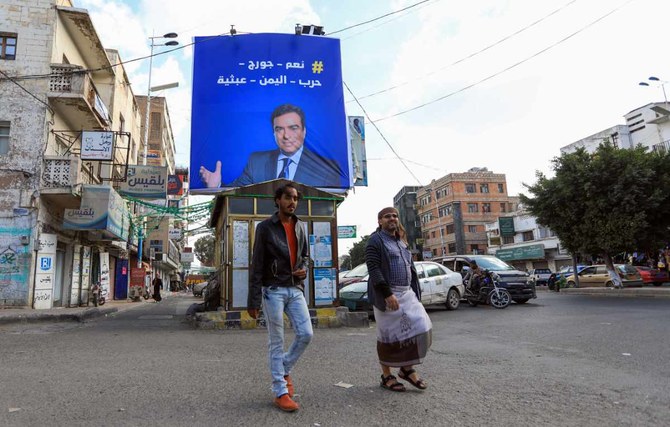
- ARAB NEWS
- 18 Jul 2025

After Saudi Arabia recalled its ambassador from Lebanon, some suggested that the Kingdom had been over-sensitive to mere words. Nothing could be farther from the truth.
As the Saudi Foreign Minister Prince Faisal bin Farhan observed, statements by the Lebanese Information Minister George Kordahi in support of the Iran-backed Houthi militia in Yemen were only a symptom of the root problem in his country; and that problem is the dominance of Hezbollah — the de facto rulers of Lebanon, and for a very long time.
Kordahi himself is an irrelevance. Even during his media heyday— which, let us not forget, began only when he joined a successful broadcaster, namely the Saudi-owned MBC — his chief claim to fame was as host of the Arabic version of the popular quiz show Who Wants to Be a Millionaire? Even now, with a serious ministerial job, Kordahi’s ability remains limited to reading someone else’s script off a teleprompter — in this case, a script written by Hezbollah.
That is why his inaccurate statements about the war in Yemen were not surprising. What was surprising was the weakness of the response from Najib Mikati’s government.
The Saudi “wishlist” of what the Kingdom requires of any Lebanese government is not what some people seem to imagine. There is no “control room” in Riyadh demanding that Lebanese ministers mind their language. What is needed is a strong government in Beirut to stop Hezbollah from supporting the Houthis in their targeting of civilians in Saudi Arabia with missiles and drones, and to halt Hezbollah’s illicit drug trafficking into the Kingdom. The Saudi response to the latter has been to ban all imports from Lebanon, but what was the alternative? These poisons were being smuggled into the Kingdom inside shipments of fruit, grain, and other apparently innocent consignments. If Lebanese authorities cannot be relied upon to halt this vile trade at its source, then the Kingdom has no choice but to take preventive action itself.
What was surprising was the weakness of the response from Najib Mikati’s government.
Faisal J. Abbas
As for the government in Beirut, if a prime minister cannot dismiss a wayward junior minister who has jeopardized national interests with inaccurate and irresponsible statements, then what good can be hoped for from such a leader or such a government? Mikati’s first pledge upon taking office was to restore ties with Arab countries, but what those Arab countries — especially Saudi Arabia — want is actions, not words (and if words are all they have to offer, they should at least be more carefully chosen than those of George Kordahi).
Other critics say Riyadh is playing hardball with a weak and shattered country, and that if the Kingdom wants to support its Lebanese brothers it should do so unconditionally. Again, that is so far from the truth as to be delusional. KSrelief, the King Salman Humanitarian Aid and Relief Centre, was among the first to send aid to Lebanon after the devastating Beirut port blast in August 2020 — Noor Nugali of Arab News was there to document it. The Kingdom has made it clear that it has no intention of expelling Lebanese expatriate workers, who continue to be appreciated for the talent, diligence and expertise they bring to Saudi Arabia. However, when terrorists are attacking the Kingdom’s civilian population, targeting its infrastructure and bombing its airports, do critics seriously expect this country — indeed any country — to support a government harboring a minister who actively supports those terrorists?
Let us be clear: Saudi Arabia is not the reason for Lebanon’s woes, Hezbollah is. Saudi Arabia did not assassinate Rafik Hariri, occupy Beirut or store explosives in a civilian port — Hezbollah did. If Lebanese politicians cannot confront these truths, the very least they could have done is to convince their information minister of the sad reality: His days of Who Wants to Be a Millionaire? are over, and the government of which he is a part — manipulated, hijacked and controlled by external forces — is now The Weakest Link.
• Faisal J. Abbas is the editor in chief of Arab News. Twitter: @FaisalJAbbas